Andreas Cornelis van Kuijk
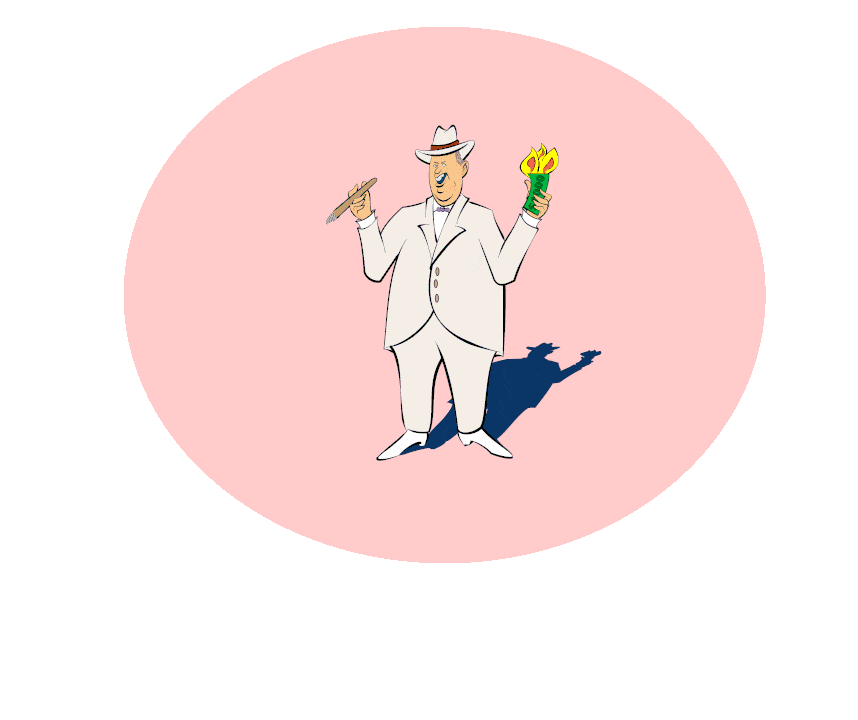
(Click on the image to zoom in.)
To this day scholars debate whether the fact that Elvis switched managers in 1955 was crucial to his success. Certainly after Colonel (hon.) Tom Parker began calling the shots, Elvis's rise was most satisfactory.
The Colonel was certainly no newcomer to promoting talent. He had been the manager for Eddy Arnold since 1944 and under Tom's direction Eddy moved to be the #1 country singer in the nation. Even today Eddy is rated one of the most influential C&W entertainers in history.
Colonel Tom even managed to get Eddy into playing Las Vegas. A country singer in Vegas? What a radical concept! The Colonel then negotiated some movie roles where Eddy got top billing.
But after a while Eddy began to chaff under the Colonel's direction. For one thing, Eddy wanted to move into television which he saw as the entertainment medium of the future. But this was a career path vetoed by the Colonel. So in 1953 the two split and Tom then entered into a partnership with Hank Snow. As we know Hank also did well.
Soon Hank and Tom noticed a young singer who was traveling on the circuit. Elvis Presley had shown talent in school and after graduation had made some demo records at the Sun Studios in Memphis. Sam Phillips, the owner of Sun, thought the young man had potential but he hadn't been particularly impressed with the songs.
But when Elvis and the other musicians, guitarist Scotty Moore and stand-up slap-bass player Bill Black, began goofing around with "That's All Right", Sam told them to go back to the beginning so he could cut a record. With the acetate in hand he then contacted local DJ, Dewey Phillips (no relation), who played the song on his nightly show. Phone calls and even telegrams poured in asking him to play the song again.
"That's All Right" was a regional hit even if it didn't make the Billboard charts. But it was enough to get Elvis into the professional music circuit. Scotty had been the group's de-facto manager, but at the start of 1955, he turned the job over to Bob Neal, a local disc jockey and businessman.
By March Bob had managed to get Elvis a tryout on Louisiana Hayride which was the #1 country music show on radio (yes, it beat out the Grand Old Opry). Again the listener's response was so positive that Elvis, Scotty, and Bill were offered a regular spot on the program. Elvis made $18 per appearance - he was the leader - and Scotty and Bob as sidemen got $12.
Bob soon found that managing the group was taking time away from his other business interests. Since one of the performers on Hayride was Hank Snow, Bob approached Colonel Tom for help.
Tom was pretty busy scheduling performances for Hank and wasn't sure about taking on another singer. Besides when Elvis sang he did funny things on stage. His knees waggled from side to side and his hips twisted and turned. But Tom was looking for an opener for Hank's shows and agreed to give Elvis a try.
The rest they say ...
Wait! What about this Andreas Cornelis van Kuijk? What the heck does he have to do with Elvis Presley?
And besides, how do you even pronounced van Kuijk?
Well, it's something like "fvon KOWK" ("ow" is as in "cow" not as in "low" and the Dutch "v" has a bit of an "f" sound). To some English ears, though, there seems to be a hint of an "l" in the name: "fvon KOW-l-K".
But we'll just call him Colonel Tom.
That's right. Andreas Cornelis van Kuijk and Colonel Tom Andrew Parker were one and the same. Andreas was born June 26, 1909, in Breda, Netherlands, which is midway and a bit to the east of the Antwerp-Rotterdam line. Even as a teenager he found he had the gift of gab and began selling concessions at local fairs and carnivals. Later he moved to being the announcer or "barker" who got people to come in and see the sideshows.
But like many young Europeans of the time, Andreas increasingly looked to America for the future. America, he heard, was a land of opportunity.
It was particularly a land of opportunity if you wanted to avoid prosecution for murder. There is no real proof for the suspicion except that Andreas was in the vicinity when a woman grocer was robbed and bludgeoned to death. After the crime was discovered he immediately skinned out never to return. Coincidence? Maybe, but people wonder.
Andreas sailed to New York as a stowaway and for the rest of his life he lived in the country as an illegal immigrant. Not surprisingly he was rather vague about his background.
It does, though, appear that Tom Parker - Andreas van Kuijk no more - served in the US Army. His military record was good until suddenly he went absent without leave (AWOL). He stayed away so long that he was charged with desertion and after his voluntary return to the base he was slapped in the stockade. When he emerged his mental condition had deteriorated to such a degree that he was deemed psychopathic and unfit for duty. He was discharged.
Was Tom really nuts or was this simply a typical Parkernian way to get out of an unprofitable situation? Who knows? But Tom soon found work in the American carnivals which at least allowed him to keep on the move.
Then somewhere along the line he met and married a young woman named Marie Francis Mott. You'd think Tom wouldn't be the type to find a life-long and happy marriage but that's what he and Marie did.
As a married man, Tom decided it might be nice to settle down. So he moved to Florida and became a manager of the local animal shelter. Again perhaps a surprise to the students of Tom's adventurous life, but Tom really did like animals.
The last thing anyone would expect for a carnival pitchman/animal shelter manager with a Section 8 discharge was to end up managing the biggest entertainment phenomenon in history. But it really was a natural transition.
Tom knew that more people would show up to fund-raisers for the animals if there was entertainment which in the early 20th century was necessarily live entertainment. His pitchman experience made recruiting performers easy and in the late 1930's, he met Gene Austin, a vaudeville performer who had once been popular but was now down on his luck. As a sideline from working with the animals, Tom took over Gene's management and bookings.
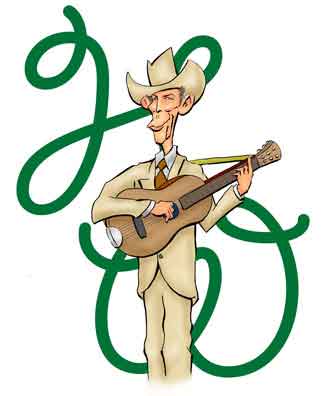
Hank Williams
It was Country and Western.
Gene lived in Nashville and introduced Tom to the group of rising stars in what was then termed "folk" music. In particular the folk sub-genre called "hillbilly" was popular in the American South and after the success of Hank Williams in 1948, it was being called Country and Western. With Tom promoting stars like Gene Austin, Eddy Arnold, and Hank Snow, by the time he took over over managing Elvis, he was an experienced and successful purveyor of talent.
During his travels and variable occupations, Tom had also been involved in state politics. Once out of gratitude for his help, the governor of Louisiana had bestowed on Tom the honorary rank of colonel in the state militia. From then on, ladies and gentlemen, it was Colonel Tom Parker.
But whatever the job, Colonel Tom thought in terms of one thing and one thing only. That was money, and he knew a performer couldn't make money playing in the auditoriums of the local high schools. So the first thing he was going to do was to get Elvis signed with a major record company. With his usual persuasiveness, Tom got the executives at RCA Victor - one of the top national labels - to give Elvis a contract.
Unfortunately, there was the earlier contract with Sun Records, and Sam Phillips wasn't interested in losing what was clearly a rising new star. To get Tom to shut up and go away, Sam decided to demand such a high price that only a fool would accept it.
You want Elvis? OK, Sam said, you can have Elvis - for $35,000. Take it or leave it.
Colonel Tom took it.
Now it's easy to see Elvis's career as BCT and ACT - that is "Before Colonel Tom" and "After Colonel Tom". Elvis BCT was a small time performer making one night stands at $20 - $30 a show. Elvis ACT was the biggest entertainment phenomenon in history who made thousands per appearance. Although strictly speaking this Before-After Tom dichotomy isn't true, it's true enough.
On the other hand, Elvis Historians point out that you do have to give proper credit to Bob Neal who had helped maneuver Elvis from a local Memphis singer to where he was an emerging star. But Bob mostly focused on the country circuit, and Tom saw that Elvis was actually singing that new cacophony called rock and roll. And rock and roll - usually spelled "rock 'n' roll" - was a national, not regional, phenomenon.
With Tom increasingly calling the shots, Elvis moved toward mainstream audiences and in January 1956 he appeared on Tommy and Jimmy Dorsey's Stage Show. For those who don't remember Tommy and Jimmy, they had been titans of the Big Band Era. The Times of the Big Bands was also the last time that parents and their kids both liked the same music. Later Elvis was a guest on The Milton Berle Show.
By March, Bob voluntarily bowed out as co-manager and under Tom's sole and firm guiding hand, things began to happen fast. Elvis's name more and more began to hit the national news, and on August 27, there was a big write up on Elvis in Life Magazine the #1 magazine in the country.
This might seem a big plus but there were warning signs. Although in the Big Band Era the kids and parents liked the same music, parents were not sanguine about their kids listening to (and watching) a hip twister whose songs sounded suspiciously like those from the "race" rhythm and blues records of Little Richard, Chuck Berry, and Fats Domino. In fact, Elvis readily pointed out that black singers had been singing rock and roll long before he had.
Although the tone of the Life article was not entirely negative, concern was expressed not just with the antics on the stage but with the music itself. It seems that the songs were parting from the wholesome lyrics from the Big Bands like "In the Mood" , "Put a Little Sugar in My Bowl", and "My Man Stands Out". Instead the writer mentioned it was "with good reason" that the censors were listening to the rock and roll lyrics.
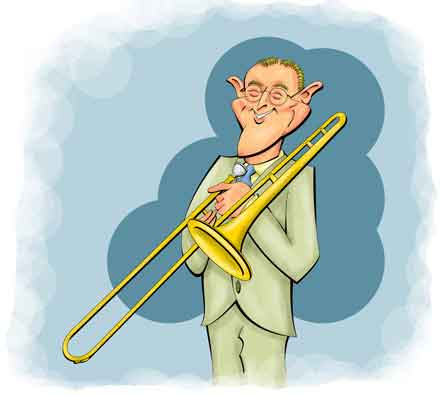
Tommy ...

... and Miltie
Of course, it wasn't just Elvis's words that convinced the adults that rock and roll in general and Elvis in particular were bringing the End to Civilization As We Know It. Earlier that year, Elvis had appeared at the Gator Bowl in Jacksonville, Florida, where Vanderbilt had beaten Georgia Tech (yes, Vanderbilt won). His gyrations caused such distress to the Good Citizens of the Town that a judge had actually drawn up an arrest warrant just in case Elvis repeated his "torso tossing spectacle" the following day. Elvis denied his motions were improper. "I don't do no dirty body movements" he said, but the reporters mentioned his second performance was a bit toned down.1
Footnote
Of course, logicians may interpret Elvis's comments differently. Writing the sentence:
"I don't do no dirty body movements."
... symbolically we let:
Bx = "x is a dirty body movement."
... and ...
Dx = "I do x."
So part of Elvis's statement:
I do no dirty body movements.
... is stated logically as:
For all x, if x is a body movement, then I don't do x.
Which is written symbolically as:
(x)(Bx → ~Dx)
So we take Elvis's entire statement.
I don't do no dirty body movements.
... which is then stated logically as:
It is false that for all x, if x is a body movement, then I don't do x.
... which symbolically is:
~(x)(Bx → ~Dx)
Now with the proper formal logic transformations:
| ~(x)(Bx → ~Dx) | Original Statement |
| ∃x~(Bx → ~Dx) | Quantifier Negation |
| ∃x~(~Bx ∨ ~Dx) | Definition of Material Implication |
| ∃x(~~Bx ∧ ~~Dx) | DeMorgan's Laws |
| ∃x(Bx ∧ Dx) | Double Negation |
The last formula:
∃x(Bx ∧ Dx)
... is stated logically as:
"For at least one x, x is a body movement and I do x."
... or in plain English:
I do at least one dirty body movement.
Elvis was not arrested but that didn't stop preachers from denouncing his performances, and one sermon decried how young people were embracing "Hot Rods, Reefers, and Rock-and-Roll".2 One minister went so far as to ask his congregation to pray for Elvis after he (Elvis, not the preacher) "achieved a new low in spiritual degeneracy". The Good Reverend even opined that if offered salvation, Elvis would probably turn it down.
Footnote
Before the slang of the 1950's becomes completely obsolete, a hot rod was a restored vintage automobile, often from the 1930's but with the engine replaced for more power. Among the stereotypical activities of the hot rodders were drag races. One of the most famous races depicted in cinema was the "chicken run" in the James Dean movie Rebel Without a Cause.
A "reefer" was the 1950's slang for hand rolled cigarettes packed with shredded cannabis sativa. At the time using reefers was considered a highly addictive and dangerous habit as noted in the source of 1950's culture Casino Royale:
"Bond guessed that [the henchman] would kill without interest or concern for what he killed and that he would prefer strangling. He had something of Lennie in Of Mice and Men, but his inhumanity would not come from infantilism but from drugs. Marihuana, decided Bond."
... and from the dire warning in the motion picture Tell Your Children later renamed Reefer Madness. Dr. Carrol, the school superintendent, commented after looking at a recent case file:
"Yes, I remember. Just a young boy, under the influence of the drug, he killed his entire family with an axe."
Tom saw that if he didn't get Elvis moving toward respectability the value of the commodity might tank. The quickest way to avoid this possibility was to get Elvis on the #1 most respectable television program in the country.
So on September 9, 1956, Elvis made his first appearances on The Ed Sullivan Show. Ed's "really big shew" appeared on Sunday night - a most respectable time when people were home after they had attended church. If there was one thing everyone knew about Ed it was he only invited guests of the highest moral character.
Elvis sang "Don’t Be Cruel," "Love Me Tender," "Ready Teddy", and "[You Ain't Nothin' But a] Hound Dog". The response was so great that Ed invited Elvis back for two more appearances. Then at the end when Ed told the viewers that Elvis was a "decent, fine boy" Tom knew that Elvis now had the Good Wholesomeness Seal of 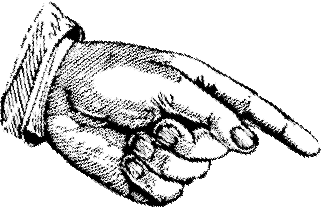
 Approval
Approval
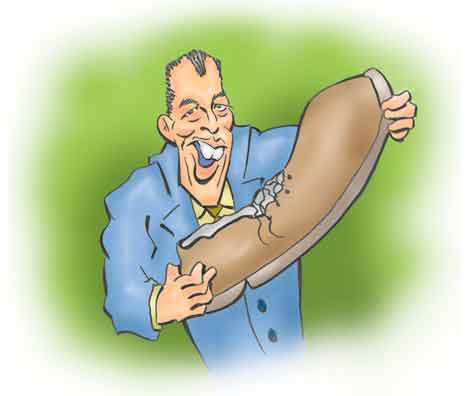
Ed Sullivan
The Seal of Approval
There was more to Elvis's growing acceptance than just the praise of - in the words of an English television director - "the guy with no neck who can't talk". America was in the middle of a polio epidemic. Polio, now largely eradicated, is a paralytic disease which primarily attacks young people. There had been an effective vaccine approved in 1955, but stories had come out that vaccination was a dangerous process. So the kids, who needed the inoculation the most, were avoiding them even though they were provided by the government free of charge.
But while backstage and while waiting to go on Ed's show, Elvis received his vaccination. The photo of Elvis smiling into the camera while getting his "shot" was printed nationwide and now kids saw that polio vaccination was not only the smart thing to do, but it was cool.
Helping save thousands of young lives was well and good, but that didn't bring in the money. That required not just more television appearances but also movies - clean, wholesome, and respectable movies. But as always, Tom wasn't going to let Elvis come cheap.
From the beginning, Colonel Tom had the goal to be the first manager to negotiate a $1,000,000 contract. This wasn't just because the Colonel would get a generous percentage. It was a way to increase respectability - and the value - of his client.
Of course even the Colonel knew that the Million Dollar Contract wasn't going to happen immediately and he was content for Elvis to have $100,000 and co-star billing. The first Elvis movie, Love Me Tender, was released in 1956. This was followed in 1957 by Loving You, and then by Jailhouse Rock, also in 1957. Throughout the years Jailhouse Rock has remained the quintessential Elvis movie, and for this picture, Elvis received $250,000. He was, of course, the star.
Naturally Elvis kept up his frenzied concert schedule. From 1955 through 1957 Elvis played over 300 live concerts. His fees rose exponentially and by the end of 1957 he was pulling in more than $10,000 per appearance.
Then suddenly the horn of plenty came to an end.
Elvis was drafted.
Now a celebrity call-up did not necessarily derail a performer's career. Most likely he would end up in the entertainment division - called the Special Services Group - where he would tour the posts and entertain the troops. He could also use furloughs and passes to keep up television appearances. This in fact had been the modus servandi for singers Eddie Fisher (yes, Carrie Fisher's dad) and Vic Damone when Uncle Sam tapped them on the shoulder.
The Colonel, though, decided on a different tack and we wonder if maybe, just maybe, he made a mistake. Instead of Elvis using his talents during his time in the army, Tom urged him just to serve as an ordinary soldier. This, the Colonel said, would bring high approbation from the adults. As he usually did, Elvis followed Tom's advice and was mustered out after two years assignment in Germany. Naturally everyone expected Elvis to return to the tours.

Fabian
Interested in Acting
But Elvis vanished from the concert scene for eight years. Instead, he (and Colonel Tom) focused on making movies. True, the scripts tended to showcase his singing and were expected to produce a soundtrack album. From 1960 through 1968 Elvis released nearly 160 singles and 35 albums.
For his part, Elvis, like his fellow teen idol Fabian Forte, really was interested in acting. But he wanted something other than movies like Girls! Girls! Girls!, Kissing Cousins, and Viva, Las Vegas!.
And Tom did negotiate some serious parts. In Flaming Star, Elvis played a young mixed race Kiowa encountering the racism of the American frontier. In the movie he sang only one song, and in another western, Charro, he didn't sing at all. The response was varied and whether the films were financially successful depends on who's writing the history. Some critics report Elvis's movies were phenomenally successful and others claim none were blockbusters. Good or bad, successful or not, Elvis did appear in over 30 movies from 1956 to 1969.

Four Lads from Liverpool
Again we have to ask if this no-concerts-but-films-and-sountracks business model was a mistake on Tom's part. Certainly he and Elvis made money, but historians have cited the beginning of the Swinging Sixties as Elvis's "decline", a decline which only accelerated after four lads from Liverpool proved it was England, not Hollywood, that was swinging.
Finally in 1968 Elvis returned to live performing in a concert that was televised as the well-received Comeback Special. Now, though, he didn't have to move from town to town since Tom began to negotiate contracts for extended appearances in Las Vegas. Elvis began playing at the International Hotel on July 31, 1969.
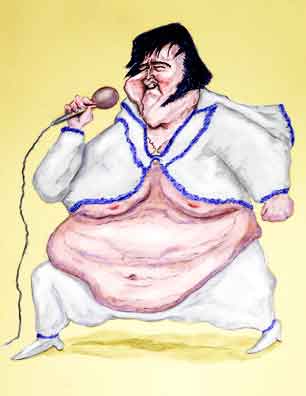
Elvis at Vegas: A Smash
He was a smash and he remained at the International for over a year. The irony is that Colonel Tom had tried Vegas in 1956 and the show had been a massive flop.
But the times - as a Nobel Prize Winner once wrote - were a-changin'. Gone were the screaming teenage girls from the Fifties and in their stead were grown women who were happy to take a Vegas vacation with their husbands. Yes, Elvis's fans had grown up and his songs had become - dare we say it? - old fashioned.
Elvis still had his hits. In 1969 "In the Ghetto" (written by Mac Davis) reached #3 on Billboard's Hot 100 and "Suspicious Minds" rose to #1. But the catchy "U. S. Male", the Jerry Reed song (with Jerry playing guitar), only made it to #28 but probably not because Elvis changed the location from Georgia to Mississippi. In 1972 "Burning Love" rose to #2, while "An American Trilogy" struggled for #66. But after "Promised Land" managed to reach #14 in 1974, Elvis no longer broke into the Top 40.
Then Hollywood came knocking with a great idea. They were going to remake A Star is Born which had been a 1954 film with Judy Garland and was based on an even earlier picture starring Janet Gaynor. Elvis would be paired up with Barbara Streisand who was at the height of her fame.
It was perfect. A serious film for singing stars that would prove they could act. This was finally Elvis's big chance.
But Colonel Tom had never given up on the idea of the Million Dollar Deal. Elvis is available, he said. But it'll cost a $1 million flat fee and after that 50% of the profits - that's the gross profits, mind you.
Well, that killed the deal. Tom just couldn't accept the idea that Barbara was now a bigger star than Elvis and she had other options for her co-star. So the lead went to Kris Kristofferson.
But maybe Elvis actually lucked out. Although the financial return was good, and the film picked up five Golden Globes (including Best Picture) the critics largely panned it.
Nevertheless Elvis was miffed that the Colonel's bullheadedness had cost him the role, and he was increasingly irritated that the Colonel would only book appearances in the United States and Canada. He scrupulously avoided Europe - again it makes us wonder why the Colonel left the Continent - and he had turned down a massive deal to tour Australia.
The arguments got strident. Finally, Elvis told Tom that his services were no longer required - not on stage as in the biopic movie, but privately albeit volubly.
Fine, said the Colonel, and he came back with a stack of papers and dumped them on the table (a tactic he also found helpful when dealing with tax audits). If Elvis would look at the numbers and the terms of the contracts, he'd see it would take between $2,000,000 and $10,000,000 to buy him out. But Elvis himself had been spending lavishly, and was even going to have to mortgage Graceland to make ends meet. So reluctantly Elvis stuck with the Colonel.
As the Sixties quit Swinging, the critics murmured that Elvis was still around largely because of Colonel Tom. More and more he made Elvis synonymous with Vegas where the shows didn't even have to turn a profit and were simply vehicles to get the customers into the casinos.
And one of the more loyal customers was none other than Colonel Tom himself. With Elvis booked for months at a casino, Tom found he had the leisure to sit at the tables and put $10,000 on a single hand or a spin of the wheel. Of course, a customer making constant regular bets for days on end meant the house percentage was sure to take over. So playing blackjack, roulette, or craps, the Colonel could expect to lose a quarter of a million a day.
Naturally the more money Colonel Tom lost, the more money he needed. And the more he needed, the more money Elvis had to make. Months-long Vegas appearances with two shows a day put an increasing strain on Elvis who, to put it mildly, didn't always take care of himself.
Elvis understood the problem well enough. Once a friend noticed that Elvis was becoming worn out and exhausted and suggested he stop touring for six months to rest up. Elvis replied he couldn't as the Colonel owed $8,000,000.
There are many articles and books about Elvis's last years and most agree on the salient facts. Like most everyone Elvis gained in heft as he aged, but not to the degree of some of the satirical representations. On stage his performances were variable. Sometimes he'd almost be like the old Elvis but at other times he could barely get through a few songs. Some shows had to be cut short and other concerts were cancelled entirety. The phenomenon that was Elvis finally ended on August 16, 1977.
With Elvis gone the family agreed that Colonel Tom had run the business about as good as anyone could have. Elvis's dad, Vernon and by no means an unastute businessman, agreed to continue with the original agreement.
Colonel Tom would receive up to 50% of the income from the records, films, and memorabilia and anything else that could be branded Elvis. The money would be sent to Tom and after taking his percentage he'd send the remainder to the estate. Then when Vernon died in 1979, the family agreed to let the Colonel continue in his current capacity. The agreement was drawn up and sent in for the routine approval in probate.
But when the judge took a look at the papers, he was flabbergasted. Do you mean, he asked, that Colonel Tom had received 50% of his client's income when he was alive and now that his client was dead he was going to still get 50%? It hardly seemed that this agreement was in the best interest of Elvis's heirs, that is, his daughter, Lisa Marie.
The judge appointed an independent attorney to review the agreement and also to act on behalf of Lisa Marie who was only twelve. Not surprisingly, the judgement found the Colonel's incredibly lopsided deal was an incredibly lopsided deal. After a four month review, the recommendation was that all the money should go directly to the executors - the chief executor being Elvis's ex-wife and Lisa's mom, Priscilla.
The final report was rather tough on Colonel Tom personally. Tom, it said, had clearly "overreached" in his dealings with Elvis. And Colonel Tom's earnings didn't always just max out at 50%. In one deal he got a 56% share of the business plus 50% from each individual commission.
Particularly egregious was that the Colonel had never bothered making agreements with the ASCAP or BMI composers organizations. So out of the 30-plus songs that Elvis wrote or co-wrote - like "All Shook Up" - he never received a penny in royalties.
But surprisingly few of the estate's executors expressed outrage at the Colonel's dealings and were among his many defenders. For one thing, they pointed out, Elvis had been the Colonel's sole client and Tom was not just Elvis's manager. He was also his publicity agent, contract negotiator, advance man, road manager, and all around everything else. Yes, 50% might have been a bit much, but Tom did much more than sit in an office and schedule concerts.
While the wrangling continued Colonel Tom stepped into a hotel elevator and tripped and fell. Unable to rise, the door kept opening and slamming against the supine form of the 70 year old senior. Eventually he was found and taken to the hospital with a broken shoulder. He was never completely well afterwards.
But his spirit was still willing and Tom was miffed that he was being pictured as a carny con operator who took advantage of a poor country boy. Elvis, he said in his interviews, was a shrewd and savvy businessman who approved of every deal they made. His relationship with Elvis was not just a simple manager-client arrangement. It was a full partnership. So getting 25% to 50% was completely proper.
Besides, the Colonel pointed out. The whole proceedings against him were completely invalid. He could he be held accountable by US contract law.
After all, he, Andreas Cornelis van Kuijk, was not a US citizen. Not only had he come to the country surreptitiously but when he joined the army he had sworn allegiance to the United States. Therefore he had renounced his Dutch citizenship. So during all the years he was Elvis's manager he was literally a man without a country and bound by no nation's laws.
That revelation was a surprise to everyone except Colonel Tom and his claims of his exemption were much disputed. But certainly here was yet one more adjustable spanner tossed into the works involving Colonel Tom.
So rather than argue about it, a settlement was finally worked out, a settlement that showed that Colonel Tom still had the touch. RCA gave him an additional $2,000,000 to settle the final rights to Elvis's records, and he also received pay as a consultant to the Las Vegas Hilton. And of course, he kept working as an agent for other singers and performers. He even brought in Wayne Newton - now Vegas's #1 entertainer - for a tribute to Elvis.
Marie died in 1986, and in 1990 the Colonel married Loanne Miller, his business assistant who was his junior by twenty-seven years. By all accounts this marriage was also happy, and they were able to keep expenses down by shopping at the bargain basements of JC Pennys.
Eventually it was reported that the Colonel's old gambling debts had been paid off (or perhaps simply cleared), but the casinos would now only let him play the cheaper slot machines where you had to use your own cash. The Colonel often had to use a wheelchair but he had other people pull the levers for him.
After Colonel Tom died in 1997, reporters immediately went to the people who knew Elvis and expected to hear about the Swindling Carny Who Cheated Elvis Out of His Rightful Heritage. Instead they were surprised to hear of a generous man who made money and whose efforts made other people money.
Perhaps the Colonel's true claim to fame is he invented the modern marketing of celebrity. From the beginning there were Elvis memorabilia and souvenirs: Elvis t-shirts, Elvis figurines, Elvis sunglasses, Elvis key rings, Elvis posters, Elvis lunch boxes, and "I Love Elvis" pins. There are even the equally popular "I Hate Elvis" buttons marketed by - yes, Colonel Tom.
And finally there is the legacy of Elvis jokes. Without Colonel Tom would we ever have heard gems like:
What's green and sings?
Elvis Parsley!
What did Elvis say after he was bitten my a hound dog?
Fang you. Fang you very much!
Why was no one hurt ever hurt in traffic accidents on the way to an Elvis concert?
They were just all shook up.
How did Elvis like his steaks?
He loved meat tender.
Why did Elvis make a double bogey on the golf course?
He was caught in a trap.
... and then there's the real knee-slapper:
What's the difference between Elvis and an Elvis fan under 70 years old?
Elvis has been sighted.
References and Further Reading
The Colonel : The Extraordinary Story of Colonel Tom Parker and Elvis Presley, Alanna Nash, Simon and Schuster, 2003.
"Colonel Parker Managed Elvis' Career, but Was He a Killer on the Lam?", Mike Dash, Smithsonian Magazine, February 24, 2012.
"Bob Neal", The Elvis Files, Robert van Beek.
"The Inside Story of How Vegas Changed Elvis Presley: Drugs, Debauchery & Superstitions", Mike Sager, Billboard Magazine, March 13, 2015.
"The King's Final Bow: Elvis's Last Concert in Indianapolis", Justin Clark, Indiana History, Indiana Historical Bureau, Indiana State Library, June 24, 2016.
"Elvis' First Big Vegas Show Was a Total Flop", Colin Schultz, Smithsonian Magazine, April 23, 2014.
"10 Financial Facts You Maybe Didn't Know About Elvis Presley", Philip Gates and Steven Wilson, Insider UK, August 15, 2017.
Elvis in Texas, Stanley Oberst and Lori Torrance, Taylor Trade Publishing, 2001.
"Why Elvis Didn't End Up in 'A Star is Born'", Gary Graff, Ultimate Classic Rock, December 18, 2021.
"Elvis Presley", Concert Archives.
"Rock-'N'-Roll: A Frenzied Teen-Age Music Craze Kicks Up a Big Fuss", Life Magazine, April 18, 1955, pp. 166 - 168.
"Elvis - A Different Kind of Idol", Life Magazine, August 2, 1956, pp. 101-109.
"8 Things You May Not Know about Elvis Presley", Marika Gerken, CNN, January 8, 2021.
"Inside the Las Vegas Show That Turned Elvis' Career Around", Time Magazine, Richard Zoglin, July 23, 2019.
"Elvis Presley's Billboard Chart Records", Gary Trust, Billboard, January 8, 2015.
"Elvis's Contracts", Alan Hanson, Elvis History, 2012.
"The Dorsey Stage Show: Elvis' Jumping-off Point in '56", Alan Hanson, Elvis History, 2011.
"What Elvis Gets Right — And Wrong — About the Real Colonel Tom Parker", Alanna Nash, Vanity Fair, June 30, 2022.
Casino Royale, Ian Fleming, Jonathan Cape Publishers, 1953.